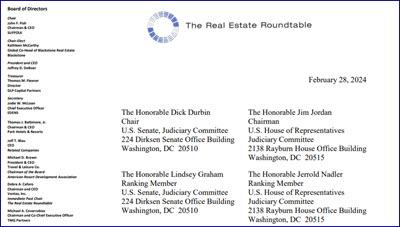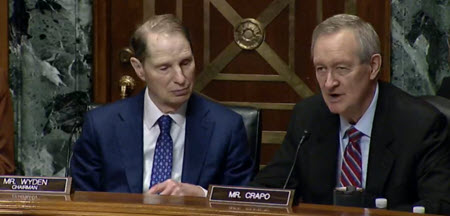
A bill passed by both chambers of Congress yesterday and signed by President Biden today punts a set of government funding deadlines to March 8 and 22, thereby preventing a partial government shutdown that was scheduled to start at midnight. (ABC News, March 1 | House bill text)
New Stopgap Goals
SEC to Vote March 6 on Climate Rule

Roundtable Urges Congress to Correct EB-5 Guidance

The Roundtable is calling on Congress to correct the error with a short statutory change that codifies the long-standing regulatory approach, which couples the periods for EB-5 capital sustainment and conditional residency.
# # #

The Senate Finance Committee’s top Republican made it clear this week that he wants changes to a House-passed $78 billion tax package, which includes Roundtable-supported measures on business interest deductibility, bonus depreciation, and the low-income housing tax credit (LIHTC). [Roundtable Weekly, Feb. 2 | PoliticoPro and Tax Notes, Feb. 29]
Senate Republicans Concerns
Congressional Timing

The best chances for enacting the tax package may be in combination with a government funding bill later in March. (See story above).
# # #

This week, Real Estate Roundtable Chair John Fish (Chairman & CEO, Suffolk) and Roundtable President and CEO Jeffrey DeBoer discussed market conditions and policy issues impacting commercial real estate with Bloomberg’s Wall Street Week and the American College of Real Estate Lawyers (ACREL).
Markets and Federal Actions
The Roundtable’s Policy Role

“By and large, the industry has stepped up to challenges, met them, and helped the economy and the country move forward.” He added, “Today there are other problems with financing and remote work, but I have no doubt the industry will overcome those challenges and emerge stronger.”
# # #